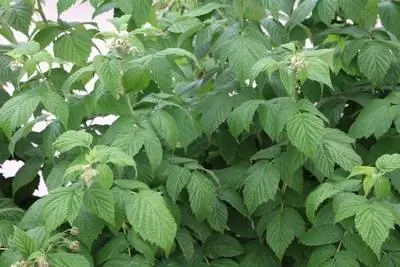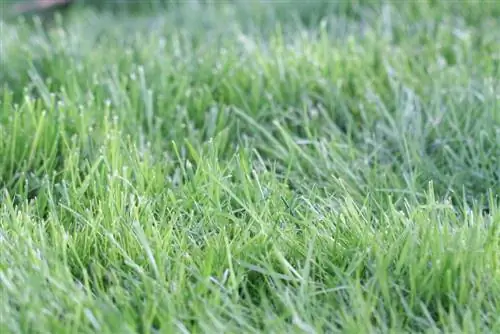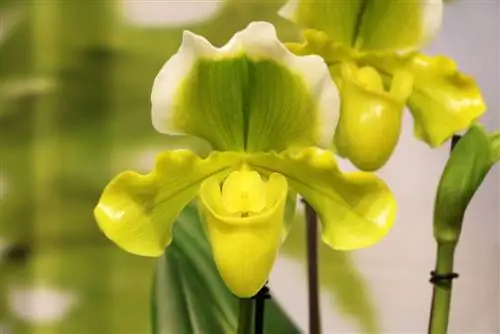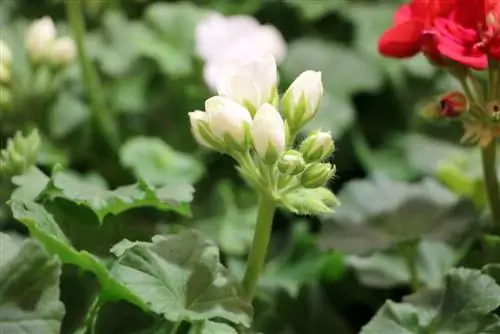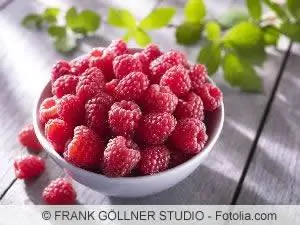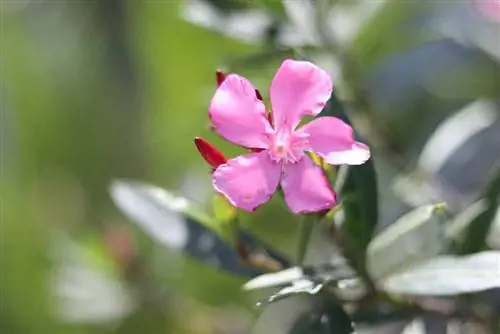- Author admin caroline@plants-knowledge.com.
- Public 2023-12-17 03:39.
- Last modified 2025-01-24 12:45.
Fertilizing raspberries properly is a rather simple task if the raspberry plants grow in he althy garden soil - but here too it is absolutely necessary so that the raspberries not only become nice and big and red, but also taste like raspberries. If the garden soil is out of balance, it needs maintenance; How good that soil care begins with planting raspberries
Raspberries need nutrients
Raspberries normally grow in or near the forest and are excellently nourished by the forest floor beneath them. A he althy forest floor has a humus content of around 20 percent and therefore consists of one fifth of the dead organic matter, which we call humus (Latin=earth) when it has been decomposed by soil organisms in such a way that plants can access the organic nutrients. A he althy forest soil is one of the best soils in terms of humus content; meadow soils contain 5-10%, and arable soils only contain around 2% humus (which, however, does not alone determine the soil quality). Furthermore, 45 percent contain minerals (sand, clay, loam, silt), the remaining very important third consists of air and water, which in turn are humus ensuring that they are evenly distributed in the soil.
To a greater or lesser extent, our garden soils do not correspond to this ideal state, more on this in the next paragraph. That's why the garden soil usually has to be prepared for planting the raspberries and is covered with a layer of mulch immediately after planting, see "Planting raspberries - this is how you plant raspberry plants". This preparation ideally provides the raspberry with the perfect supply for the hard work of rooting that it has to do in the season after planting.
In the following season, the first full harvest can be expected, for which the raspberry needs nutrient replenishment:
- Best in organic form
- From well-rotted/seasoned manure or nutrient-rich compost
- With a few horn shavings and some bone meal
- Synthetic fertilizer is usually out of place here
- for gourmets of course for taste reasons
- But it is also usually very nitrogen-heavy and difficult to dose
- Raspberries only need a little nitrogen and are sensitive to over-fertilization
The organic fertilizers must first be broken down by soil organisms, which is why they are applied in late autumn for the next season. Every 2 to 3 years, the mineral and trace element content of the soil is refreshed with a little stone dust and/or algae lime. The fertilizer is scattered on the mulch of organic matter that protects, keeps moist and nourishes the raspberry roots since planting; or applied under the new mulch material when replacing the mulch in late fall or spring. Work in fertilizer lightly and superficially with the rake, as most of the raspberry roots “lurk” close to the soil surface for water and nutrients.
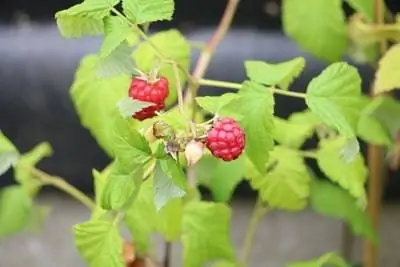
How much you apply depends on the nutrient content of the soil; With organic fertilizers, however, you can work with “a little more” or “a little less” better than with synthetically produced concentrates, because the nutrients packed in manure etc. gradually become available to plants and can be accessed by the plant when needed.
How well the raspberry can benefit from the nutrients applied or how quickly these nutrients are available to plants depends on the general condition of your garden soil:
It’s the floor that counts
Anyone who occasionally reads reports on gardening forums knows the camps in which German hobby gardeners have been divided since the first Green politician entered parliament:
1. The conventional gardeners
The “conventional” gardening hobby gardener cultivates his garden seriously, diligently and carefully, but has rarely had the opportunity to learn how to use his garden from a gardener. It is therefore based on the recommendations of garden retailers, which, like all recommendations from product sellers, are often aimed at purchasing products. As a rule, this means that the hobby gardener quickly has a proud range of equipment and an impressive collection of tools, fertilizers and pesticides, etc. in their home.
All of this needs to be used, and the hobby gardener is kept busy: He rakes and digs, scarifies and aerates, fertilizes and sprays pesticides; Good garden soil never develops because the soil and soil life are constantly disturbed in their natural development. Fertilizer applied without prior analysis leads to overfertilization and nitrates in groundwater; Plant protection products no longer work because the treated plant has long been resistant to them, but they cause damage to the surrounding area. Such gardens only do reasonably well if the hobby gardener works a lot and therefore hardly gets to use his purchases.
2. The Organic Eco Gardeners
The organic or eco-gardener, on the other hand, has a reputation for being somewhat careless because “nature takes place” in his garden, which does not always fit exactly into the rectangular bed and is not intended to grow rectangular at all. However, he usually learned how to take care of his garden from a gardener, his parents or grandparents, who had already learned how to grow a useful basic supply of fruit and vegetables from their ancestors. As a child, he mostly “absorbed” the most important “ingredients” of a successful garden: good soil care (with as little intervention as possible, such as digging), the right plants in the right place and a gardener who knows what he is doing, but prefers it watching the plants grow.
3. Reason brings people together, including gardeners
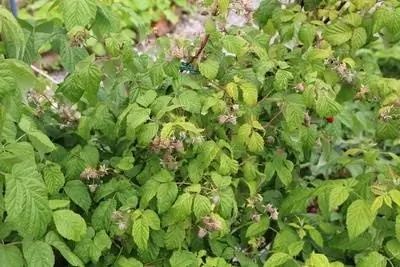
One of the more pleasant side effects of our chaotic times is that more people have access to information. This is why more and more hobby gardeners who practice “conventional gardening” are noticing that it is not a good idea to cultivate the garden with chemical products that are proven to pose a significant (or still completely unknown) potential for danger and thus the profit interests of the producers instead of their own interests to use. With more and more “conventional gardening” products, it turns out that they do more than just good things for customers and the environment after purchase
Why the once irreconcilable camps are slowly becoming more aligned; When people receive enough information, reason often wins out.
More and more gardeners are also noticing that the whole “conventional garden management” like “conventional agriculture” was invented in the post-war years by an emerging chemical and pharmaceutical industry; while conventional garden management in the sense of traditional garden management can look back on a centuries-long history of development in which a great deal of knowledge has been accumulated.
4. The soil and the raspberries
What does this have to do with raspberries? Well, quite a lot, because today you can probably assume that the majority of home gardeners are interested in re-establishing natural soil in the garden or are already caring for such soil.
The raspberry, which tastes and smells like raspberries, is one of the candidates that benefits disproportionately from “more nature in the soil”. Many plants used in ornamental plant production come from “growth plants” that grow everywhere (in natural and chemically supplied soils and also in chemically contaminated soils). This is not necessarily the case with raspberries; Absolute undemandingness is generally not as easy to “breed” when it comes to crop plants as it is in ornamental plant production (breeding in quotation marks because mass cultivation of cuttings that grow almost in the freezer and in the blast furnace has little to do with real breeding): crop plants are precisely defined, the plant industry breeds with apple trees, tomato plants or raspberry bushes that bear apples, tomatoes and raspberries. The customer expects the production result to smell and taste like apples, tomatoes and raspberries, a major problem for industrial plant cultivation (which is why the question of taste is so often simply ignored due to commercial requirements). The genetic cocktail mixed together in the laboratory produces plants that survive almost any disregard for their requirements, but at the same time the taste tends to disappear.
If there are plants with a lot of aroma among the cultivars, they are usually “old cultivars” that still contain most of the genes of the original species. This is also the case with raspberries, a good example is the 'Yellow Antwerp', our oldest existing European raspberry variety; The wild Rubus idaeus in its original form naturally also belongs here. These raspberries do not grow everywhere, but only in soil that is similar to the soil in the species' natural habitat. If you have garden soil, then good garden soil that can only be found in a garden where there is nature.
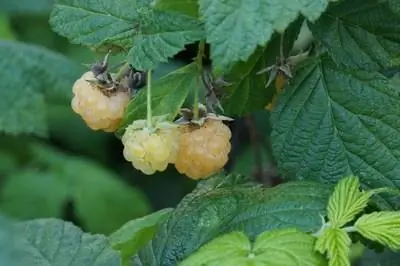
Only in such soil will raspberries grow that really taste like raspberries, and only with raspberries in such soil is it worth thinking about the nutrient supply of the raspberry plant - you don't need to go to such lengths to get a little raspberry-like aroma You can get them cheaply in the nearest supermarket.
The best thing about it: A naturally managed garden with well-kept, he althy garden soil does not require more work than the garden that is managed “according to the specifications of the garden center advertising brochure”, but rather less (much less). A naturally managed garden does not cost more than a conventionally managed garden, but rather less (much, much less; with a low “fun purchase rate” you can stay in the double-digit euro range every year).
Mulche: permanent fertilizer and source of humus
A good garden soil is created primarily through nature, time and doing nothing; with the measures to combat poor garden soil, e.g. For example, if you have just taken over the newly purchased house, you have already started planting the raspberries or providing soil that is suitable for them.
By planting the raspberries, you have applied a layer of mulch over the root zone of the raspberries, and for raspberry plants it is strongly recommended that this layer of mulch be maintained permanently as a replacement for the high humus content of the forest floor. The mulch layer becomes thinner as the material rots, which in itself nourishes the raspberries to a certain extent. However, you can adjust the fertilizer content as desired by mixing in or sprinkling fertilizer in a suitable form such as horn meal (nitrogen, if little) or rock powder (soil additive, minerals, trace elements). Knowledgeable natural gardeners can even supply heavy-consuming vegetables with properly composed mulch. Otherwise, you simply have to continually supplement the mulch with fresh organic matter made from shredded plant parts, e.g. B. slightly dried, loose and not too thickly scattered lawn clippings, fallen leaves, shredded clippings. If the heavily rotting parts become too much at some point, you can clear away the mulch with the rake, sieve out large pieces and reapply the rest supplemented with fresh material.
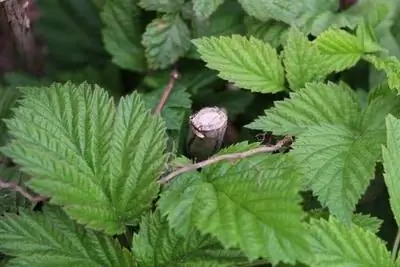
By maintaining/supplementing this mulch cover, you are actively caring for the soil, which you can extend to other garden areas if they need it. Really active soil care, mulch is not just “permanent fertilizer”, but soil care in all directions:
- In hot weather, the mulch cools the soil, which is very important for the plant roots
- In the evening the heat stays in the ground longer
- The whole summer will be just a little bit longer
- The mulch cover also provides good protection against bad weather
- Mulche binds and channels heavy rain
- This prevents waterlogging, which poses a real danger to raspberry roots
- On the other hand, the mulch retains moisture in the soil when it is dry
- This keeps the soil loose and elastic
- Of course also saves watering water
- In winter, the mulch blanket warms the important soil organisms
- They are the ones who produce humus, along with water and air, the basis for life on our planet
To put it the other way around, by mulching you have done everything you can to create good soil; After all, it's no different with a forest floor: parts of plants fall down, rot and become humus.
The rest of the care of good garden soil essentially consists of omissions:
- Don’t damage your garden soil by over-fertilizing
- Do not poison garden soil with pesticides (vinegar, s alt, other incorrectly used home remedies)
- Do not destroy soil structure by constantly digging up
- Do not damage plant roots by hoeing or scarifying
- Do not remove every plant that joins a plant community on its own
- Don’t tire out the soil with monocultures
Tip:
Mulching and a neat-looking garden are by no means mutually exclusive. All you need is the right shredder (which is part of the communal property that can be borrowed in many settlements) and you can spread an even, soft brown crumb structure on the ground. The soil organisms thank you for the good preparatory work

